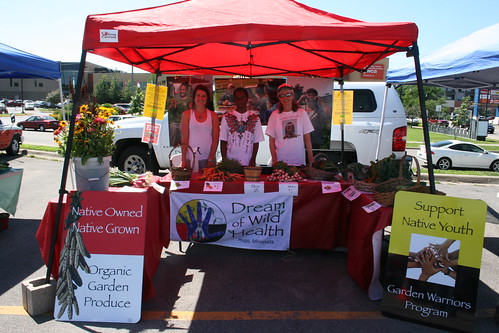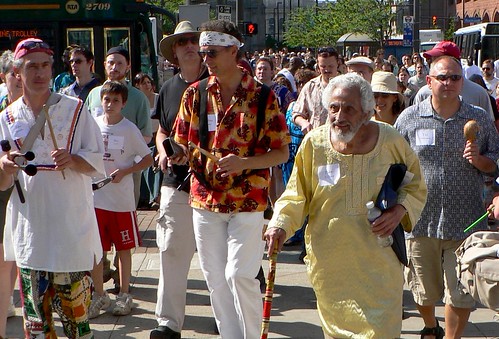In agriculture, we talk a lot about sustainability. As a method of growing crops, caring for ecosystems like forests or wetlands, or even the economic sustainability of businesses—we look at this word from all angles. But there’s another component to consider: cultural sustainability.
As a nation of immigrants, we have many rich and complex influences woven into the history of our country. Foods we eat, holidays we celebrate, how we create goods or perform services—these are all things that are shaped by the cultural identities of our families and the communities around us.
For many communities, farmers markets are playing a pivotal role in maintaining and enabling these cultural ties.
At Dream of Wild Health (DWH), an American Indian owned and operated farm in Hugo, Minnesota, farmers markets are a vital part of helping tribal communities reclaim their physical, spiritual and mental health. Their programs began as a way of connecting Native people with indigenous foods and medicines, and expanded to include two farmers markets, a mobile market, an indigenous berry orchard and a seed saving program that preserves traditional plantings. DWH teaches youth and families in Native communities how to live healthy, balanced lives—including how to grow, cook and sell foods. They also make donations to food pantries and elder programs, emphasizing the connection to the larger community around them.

Over a third of the markets listed in the USDA National Farmers Market Directory include crafts or woodworking items among the products they sell. This speaks to the thousands of local artisans who rely on farmers markets to share their artistic legacies. At the Burlington Farmers Market—a year-round market in Vermont—the community has embraced its artist community, running an Artists Market during the summer months alongside the traditional market. Jewelry, beading, metalwork, photography, leather goods, carved wood pieces and textiles from local crafters, apprentices and seasoned artists showcase the diverse community and their cultural influences.
The Haymaker Farmers Market in Kent, Ohio started as a project that would bring local agricultural products into the city and help revitalize a struggling business district with increased foot traffic. Over the years, the market has become a cultural centerpiece as well, adding a full line-up of music to its summer season. Diverse musicians from all backgrounds perform a wide variety of songs--everything from traditional African drumming performed by a local professor to Civil War era music by an old-time string band. Haymaker is one of many markets connecting its visitors with performers who are preserving and sustaining their culture through music and dance.
Through traditional foods, art and music, these are just a few examples from over 8,000 markets across the nation that are forging important bonds between our past and our future. I hope, as National Farmers Market Week comes to a close, you’ll get out to a market near you and embrace and enjoy the cultural heritage celebrated there.

